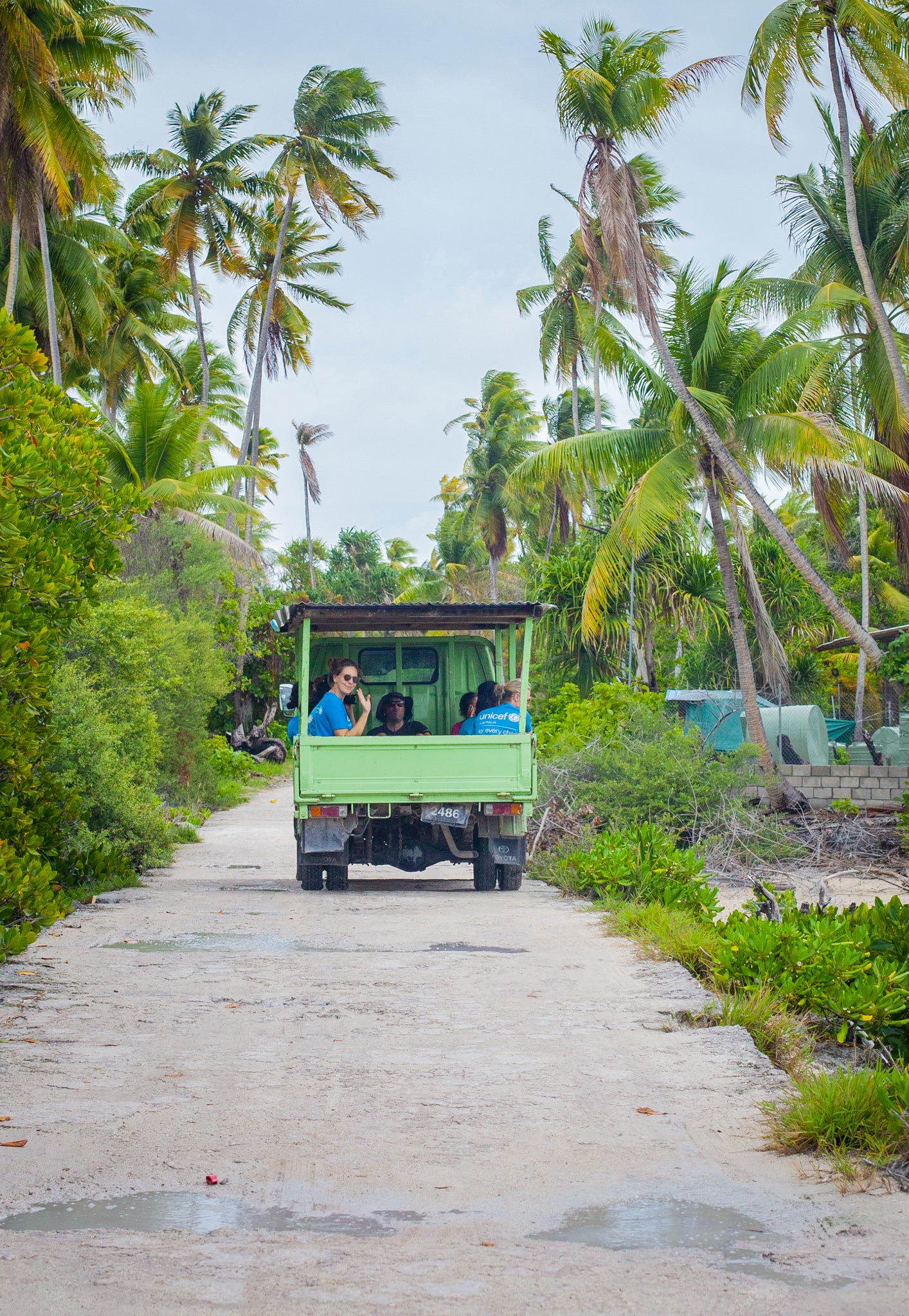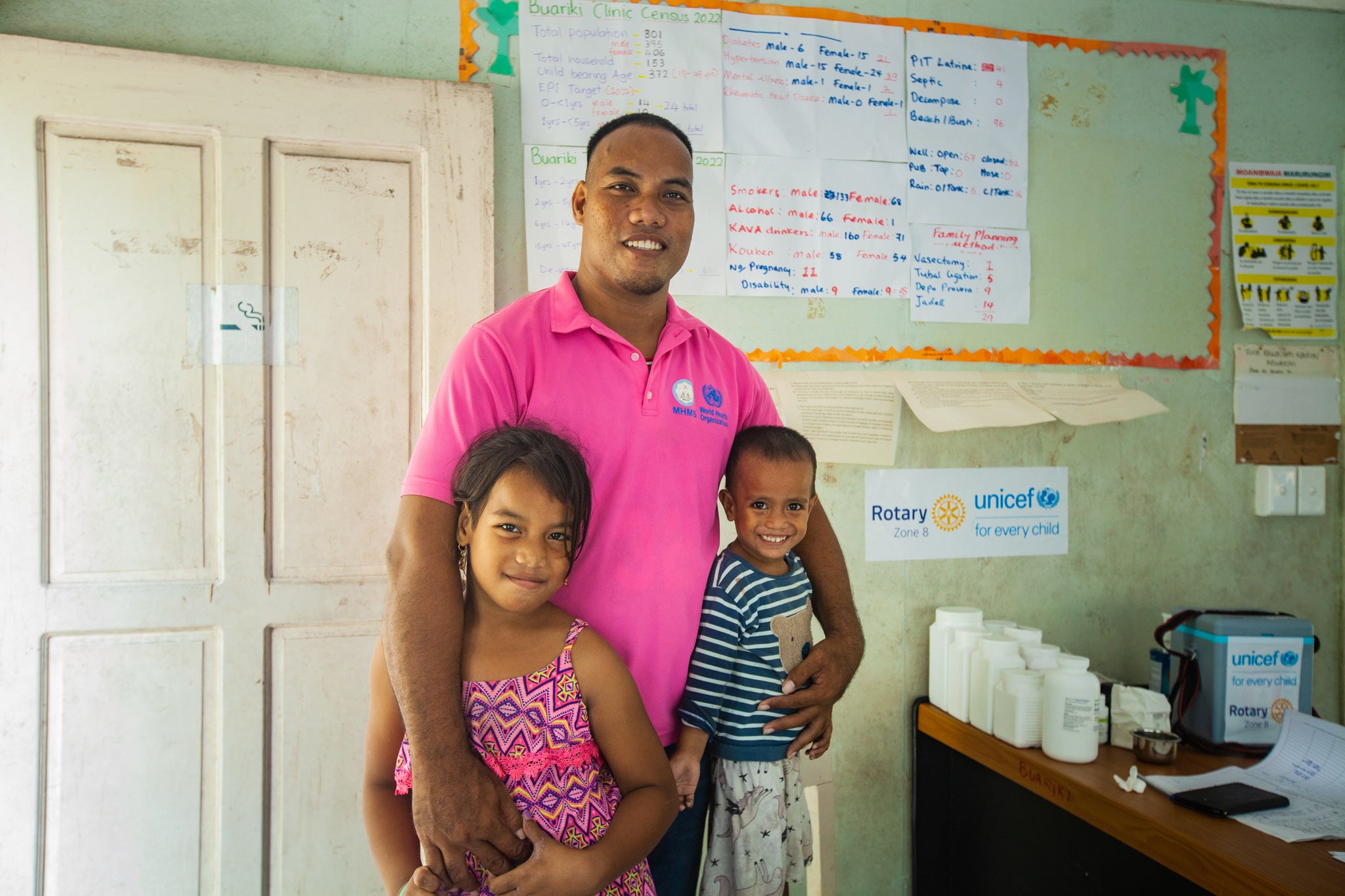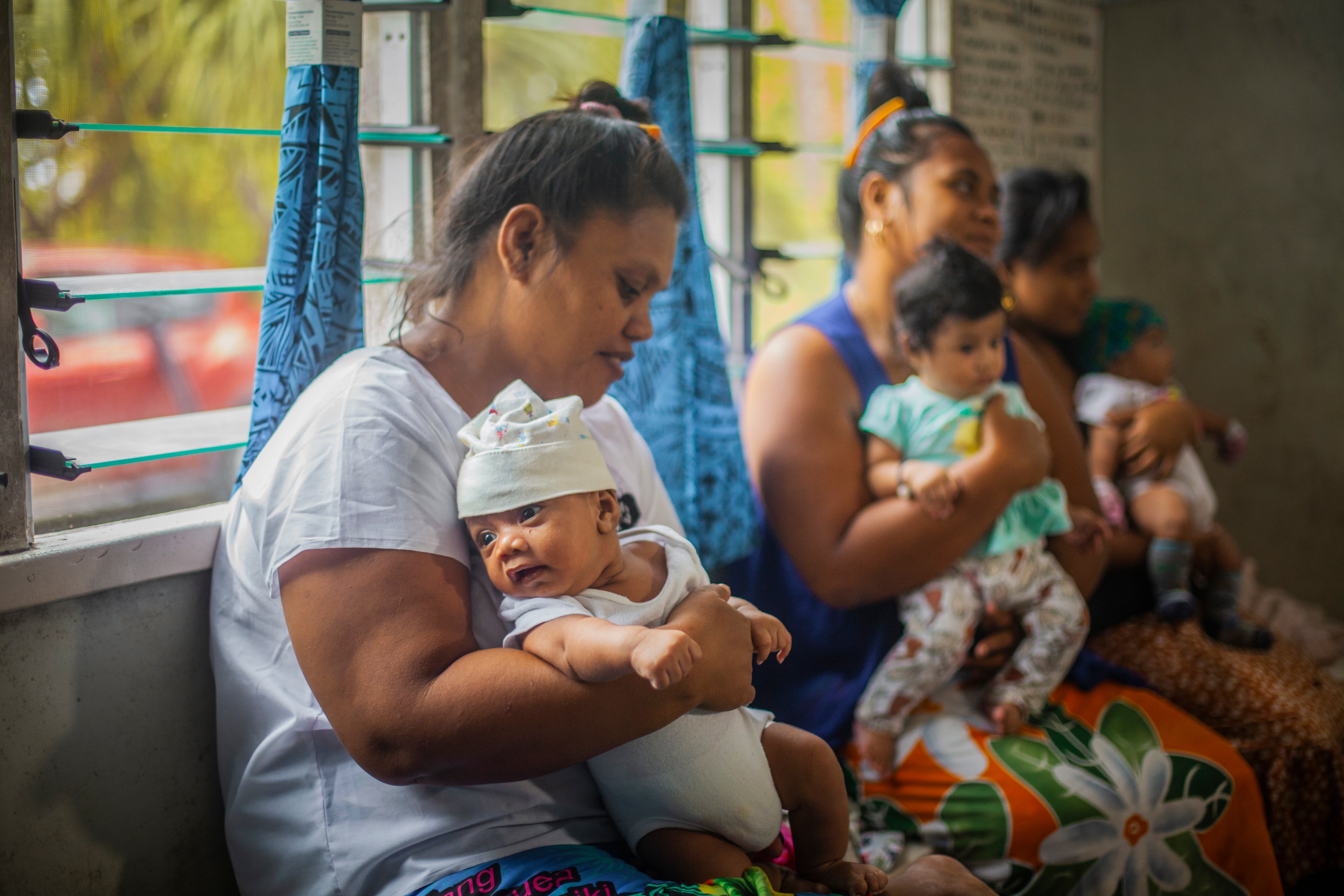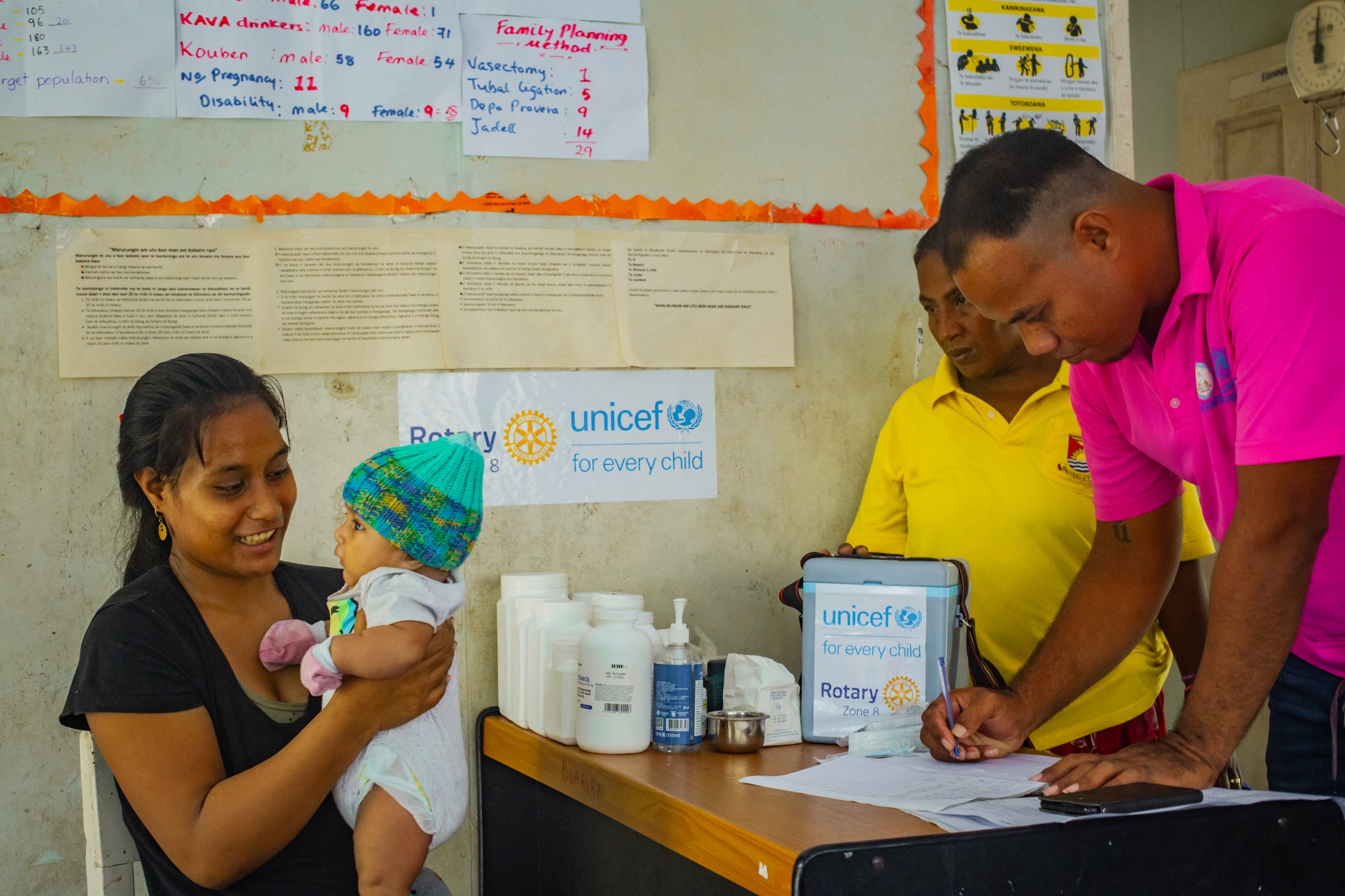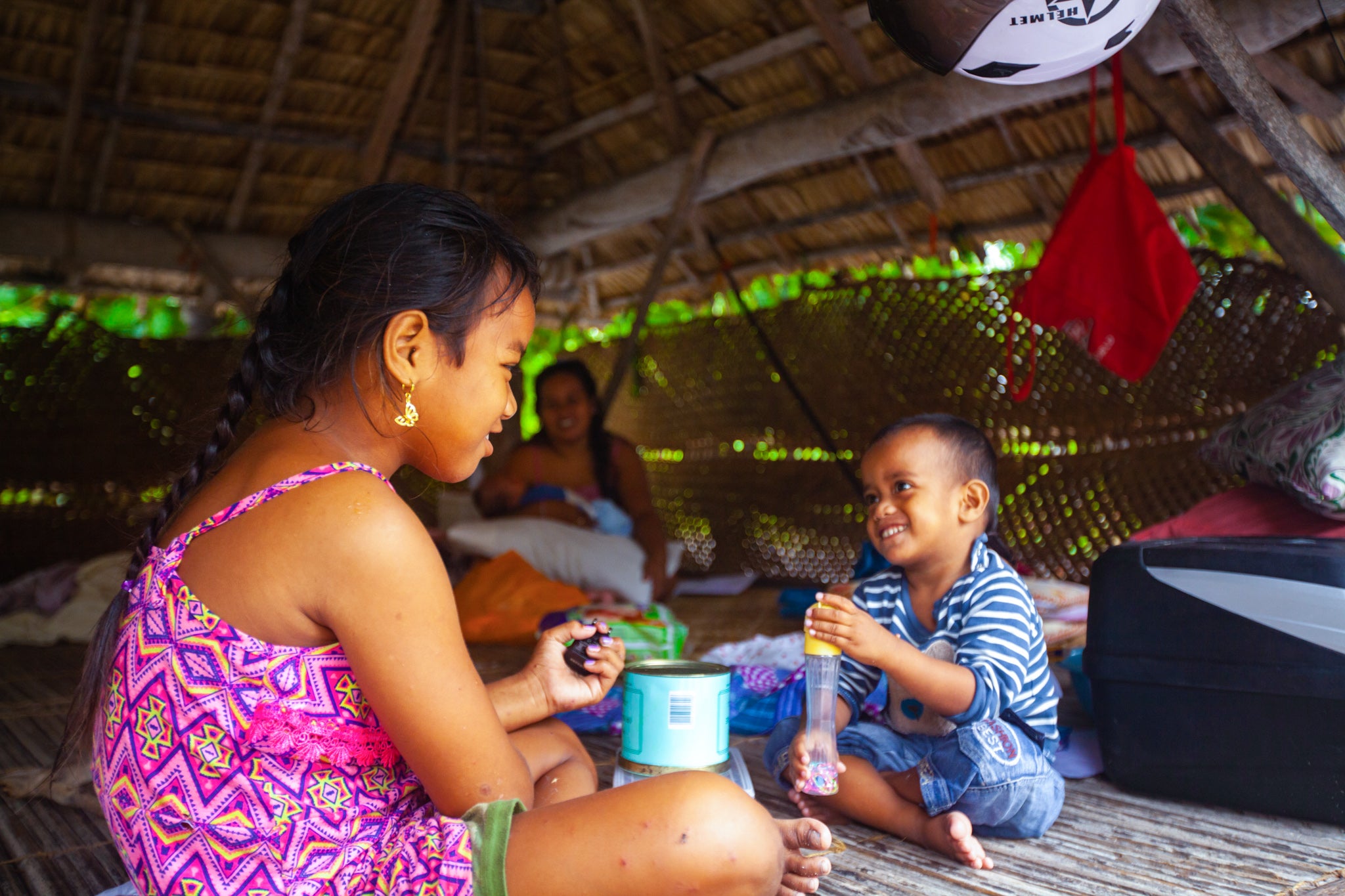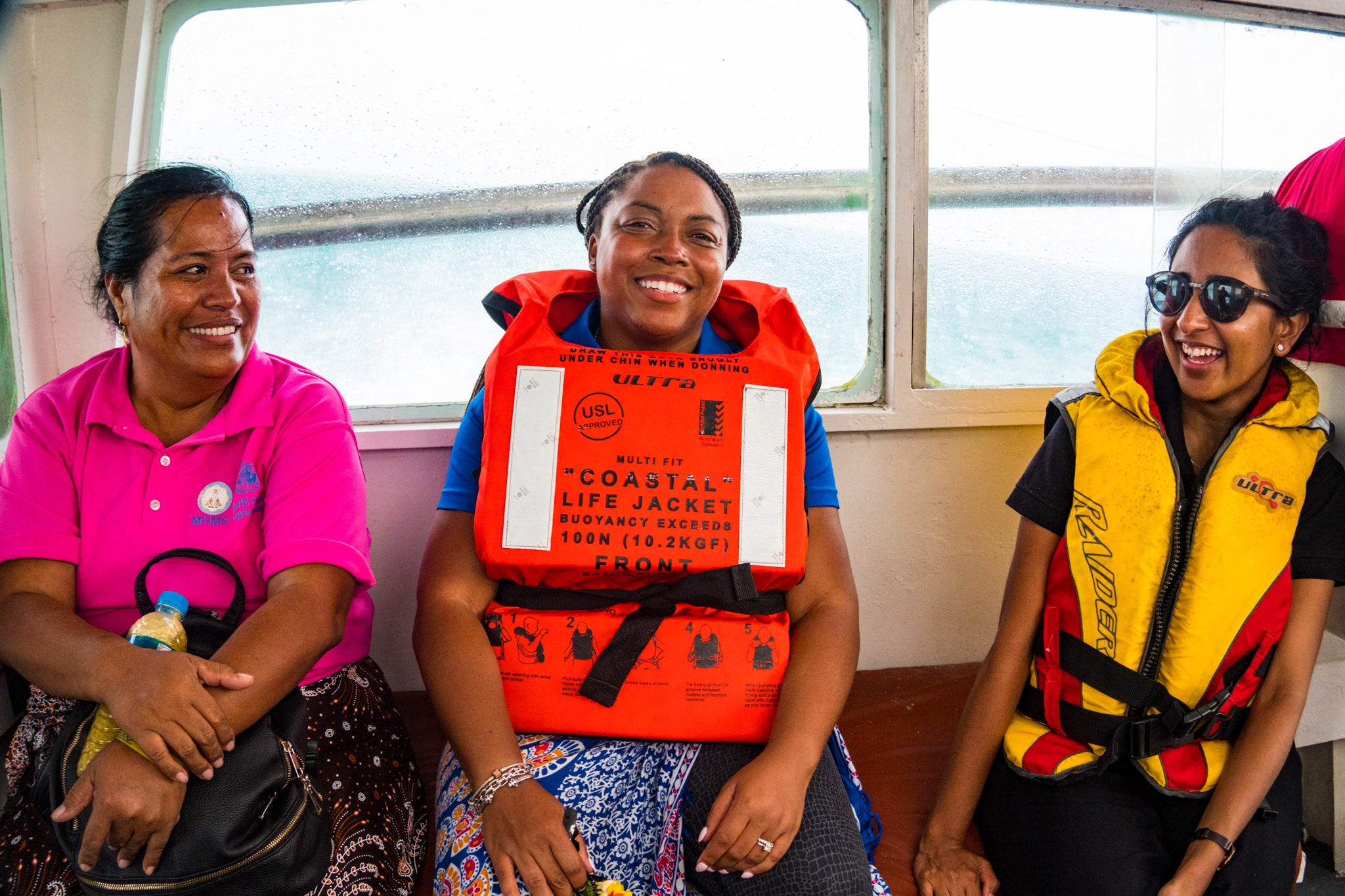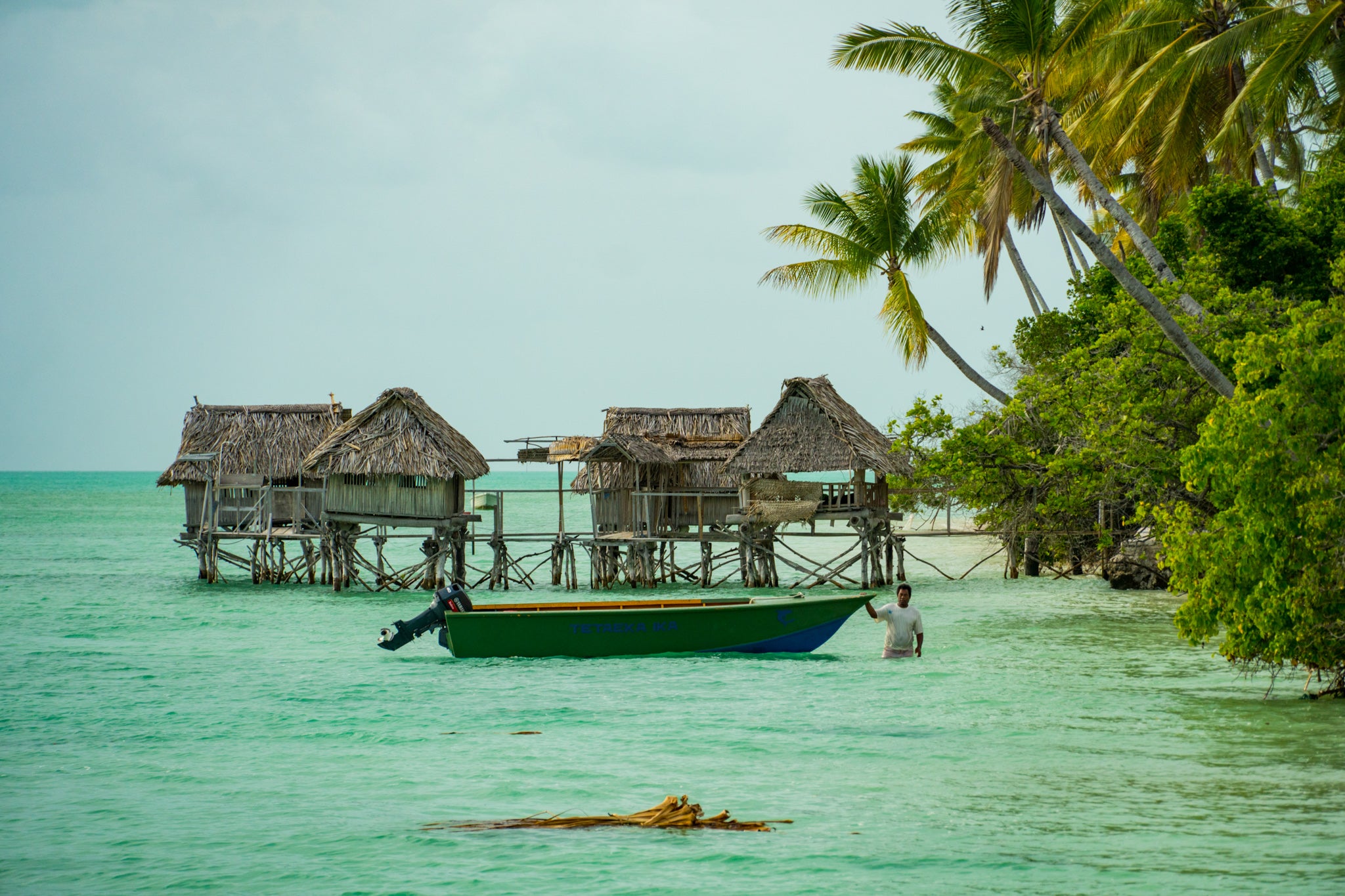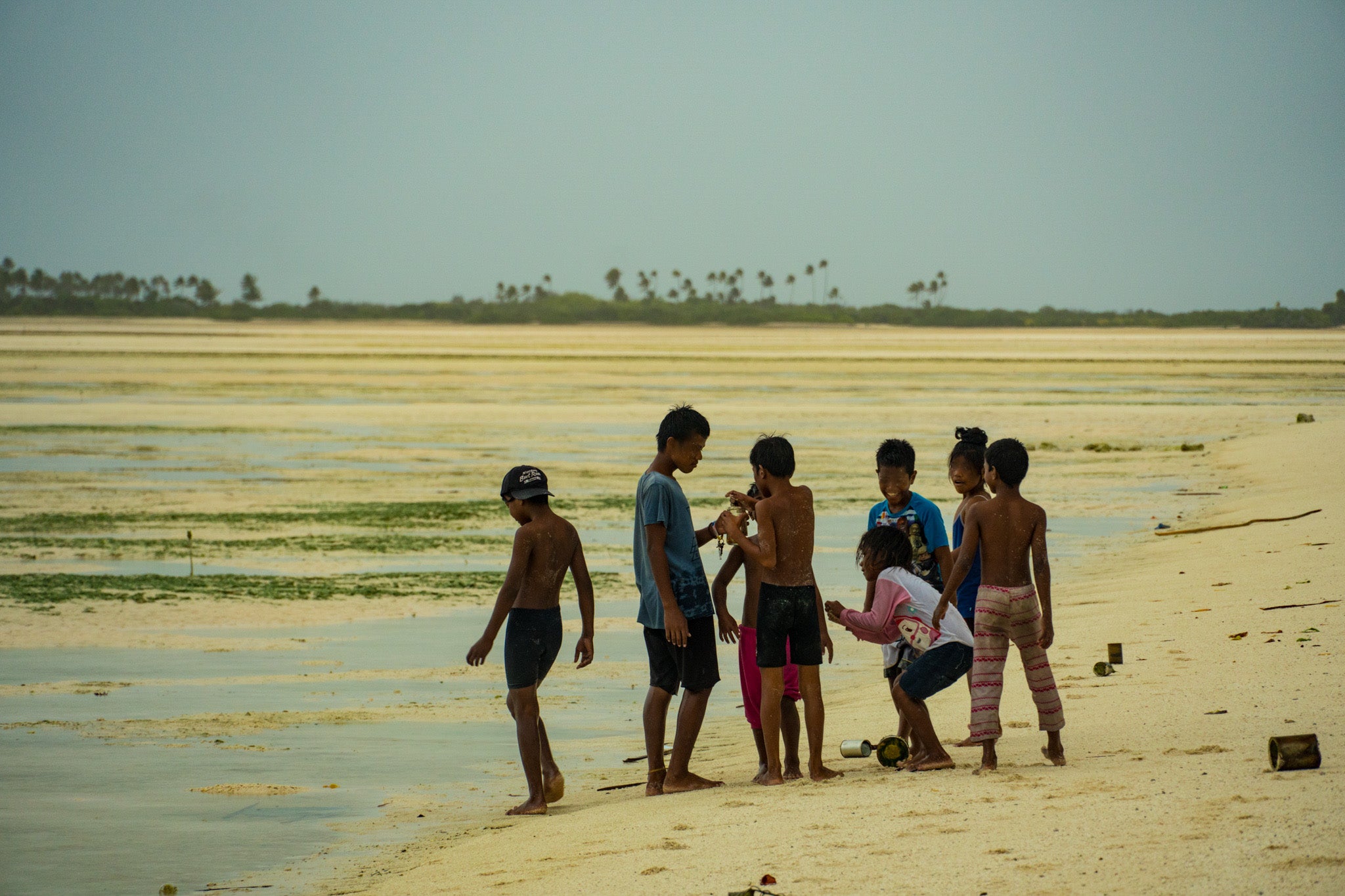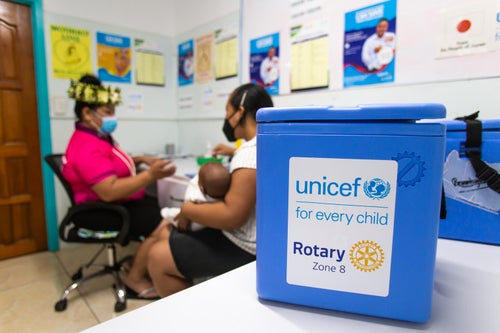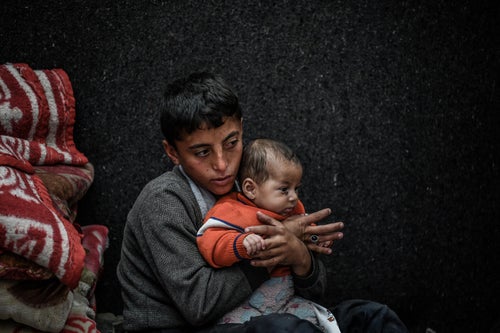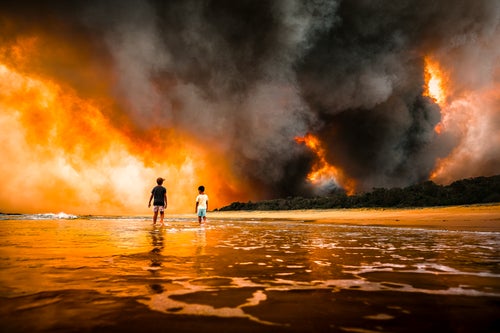In October 2022, the UNICEF Australia team travelled an arduous journey by plane, boat and truck with our partners from Rotary to visit one of UNICEF’s most remote field offices in the world, Kiribati.
As a climate-affected island nation, Kiribati is a place where access to safe and clean water is challenging and increases the likelihood of diseases such as rotavirus. Rotavirus causes a severe form of diarrhoea and is sadly responsible for a significant percentage of deaths in under fives.
Meet some of the local heroes on the ground who are working daily to provide life-saving vaccines in some of the hardest to reach communities, ensuring every child has a bright future.
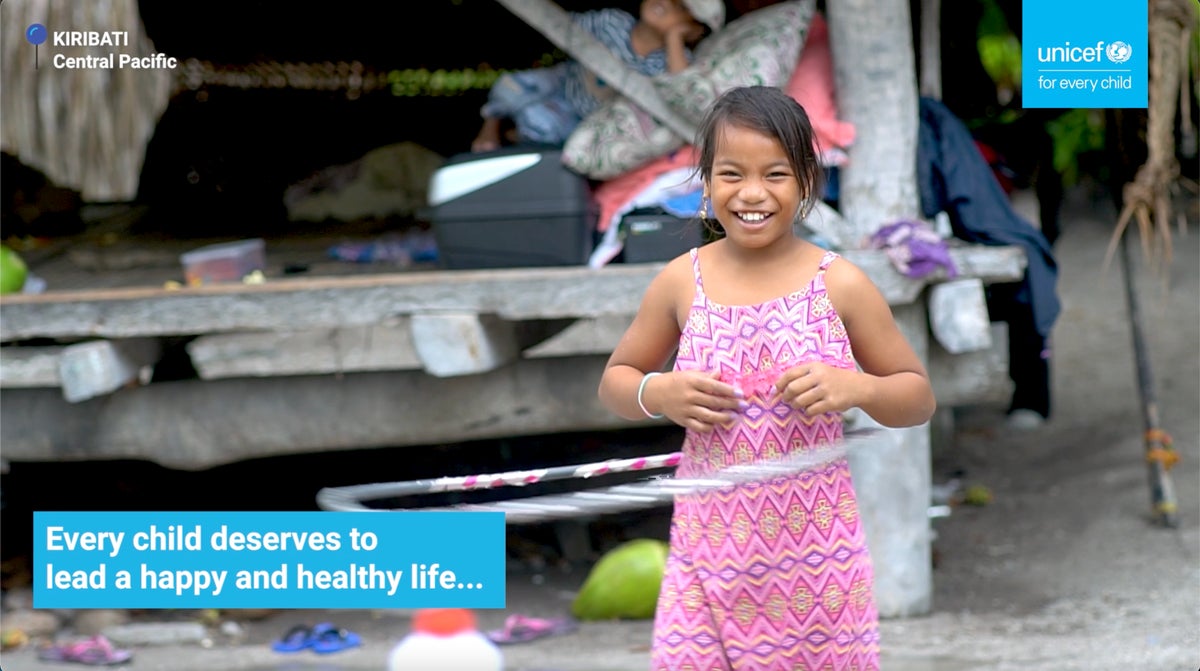
Give every child a future
UNICEF and Rotary come together to deliver life-saving vaccines for every child.
Meet Kakoroa and Maria
When UNICEF teams met Kakoroa, a local dad and Kiribati public health nurse at a UNICEF-supported health clinic, he was busy prepping for a day of routine immunisations for little ones in their remote, close-knit community. His current focus is administering rotavirus vaccines, supplied by UNICEF thanks to the support from Rotary’s ‘Give Every Child A Future’ program.
We were told by another public health nurse, Maria, that the community has seen a remarkable 90% decrease in deaths in children under five since the program was implemented.
“In past years, the cases for children under five with severe diarrhoea were more than 30 or 50 in a month. But nowadays, it’s down to 3 to 5 cases.
I am very glad about the cases that came to us early, because we were able to treat them, so they had no further problems,” Maria says.
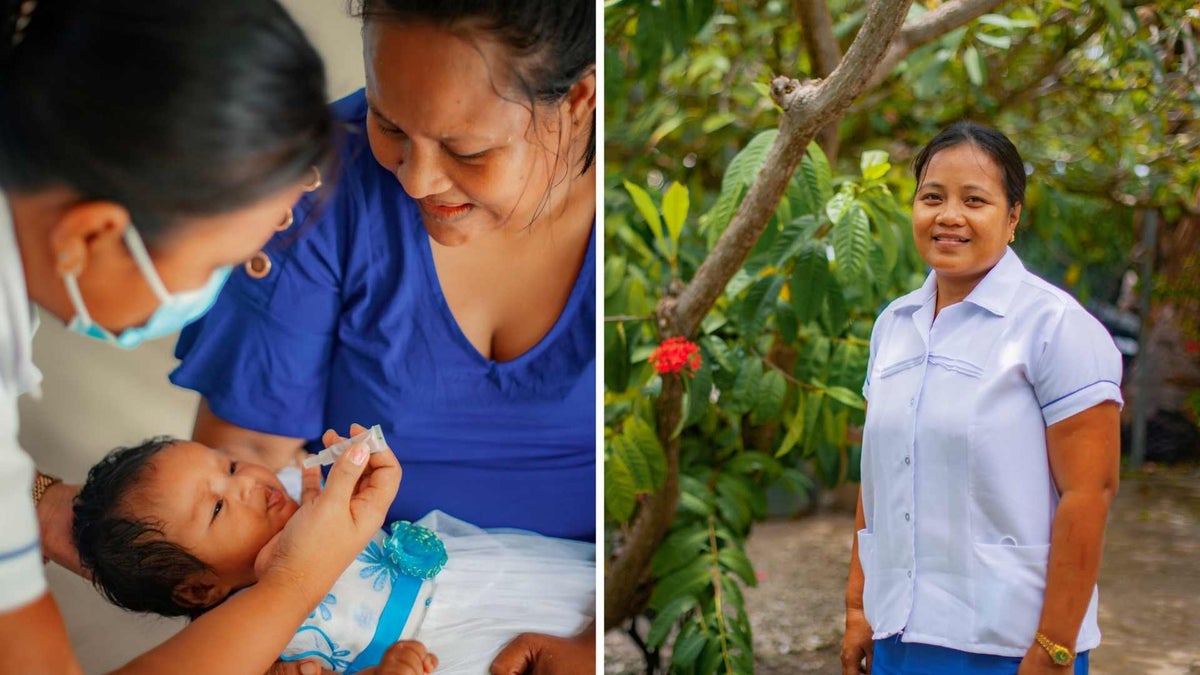
Next door to the UNICEF-supported health clinic is Kakoroa’s home, and like many I-Kiribati people he lives just a short walk away from the rising Pacific Ocean’s edge. Kakoroa has two energetic and cheeky children who play lovingly together in their traditional, open air home.
Kakoroa explains that he prioritised vaccinating his children. “My kids are in good health now. Since they have received their vaccinations, and I have not seen any diarrhoea, pneumonia or any other serious diseases in them,” he said.
Kakoroa said that his community is like a family. He spends time talking with his community, advising on how to cook proper nutritious food for children, raising awareness on hygiene practices and on the value of life-saving vaccines.
"My favourite part of my job is to make sure that my children and all children, do not get any diseases! I encourage other parents in my community to receive vaccinations for their kids by telling them the example of my kids. "
Thanks to our generous supporters, UNICEF can be there to strengthen healthcare systems in countries like Kiribati, meaning healthcare workers like Kakoroa are given the tools and training they need to support and protect children.
Together, we can support governments, communities and local partners in the Pacific, creating a ripple effect of good health practices for generations to come.
Vaccinate Children. Save Lives.
Help protect children against preventable diseases with lifesaving vaccines.
Related articles
Stay up-to-date on UNICEF's work in Australia and around the world



